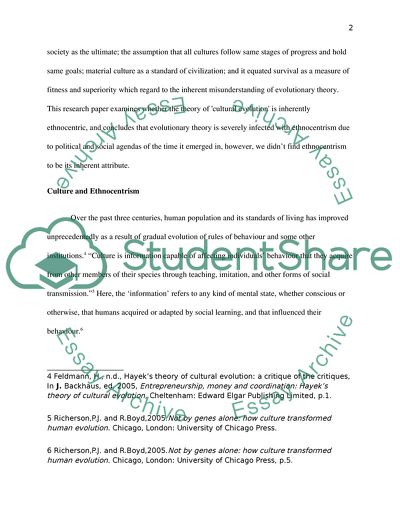Cite this document
(Is the Theory of Cultural Evolution Inherently Ethnocentric Research Paper Example | Topics and Well Written Essays - 4750 words, n.d.)
Is the Theory of Cultural Evolution Inherently Ethnocentric Research Paper Example | Topics and Well Written Essays - 4750 words. https://studentshare.org/anthropology/1848578-is-the-theory-of-cultural-evolution-inherently-ethnocentric
Is the Theory of Cultural Evolution Inherently Ethnocentric Research Paper Example | Topics and Well Written Essays - 4750 words. https://studentshare.org/anthropology/1848578-is-the-theory-of-cultural-evolution-inherently-ethnocentric
(Is the Theory of Cultural Evolution Inherently Ethnocentric Research Paper Example | Topics and Well Written Essays - 4750 Words)
Is the Theory of Cultural Evolution Inherently Ethnocentric Research Paper Example | Topics and Well Written Essays - 4750 Words. https://studentshare.org/anthropology/1848578-is-the-theory-of-cultural-evolution-inherently-ethnocentric.
Is the Theory of Cultural Evolution Inherently Ethnocentric Research Paper Example | Topics and Well Written Essays - 4750 Words. https://studentshare.org/anthropology/1848578-is-the-theory-of-cultural-evolution-inherently-ethnocentric.
“Is the Theory of Cultural Evolution Inherently Ethnocentric Research Paper Example | Topics and Well Written Essays - 4750 Words”. https://studentshare.org/anthropology/1848578-is-the-theory-of-cultural-evolution-inherently-ethnocentric.


